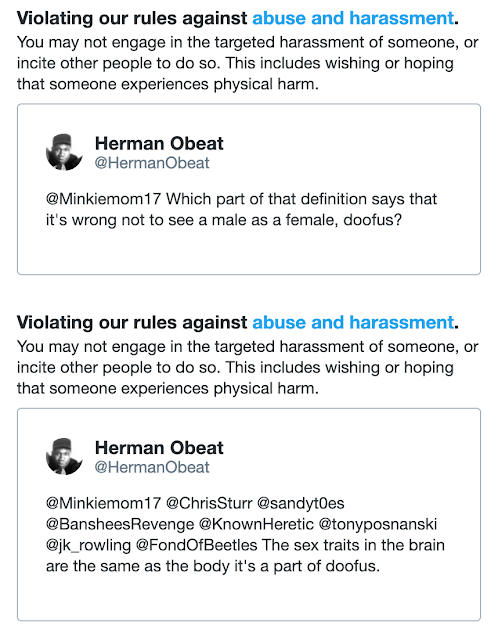Elon Musk's purchase of Twitter at the end of October and stated desire to transform it has sparked a growing conversation on free speech. This conversation has revealed the contradictions in the positions of those both in favor of and opposed to censorship, including his own. Musk's stated goal has been to increase free speech on Twitter, seeing it as the digital commons, and free speech in that commons as vital to a healthy democracy. The clamor against this change and the direction from which it has come has illuminated precisely why it is needed, and displayed the hurdles to its success. While external economic pressures from governments and advertisers make the transformational task difficult, the greatest dangers may prove to be internal. Despite a massive staff reduction of ideologically driven workers, there seems to remain resistance to the change by some staff and automatic algorithmic functions acting as termites in the house undercutting the stated goals of increased free speech.
Musk has been portrayed as a free speech absolutist, by himself according to numerous articles, although they do not make clear where or when he made the claim. He has made clear that he believes there should be some limits to speech. In a Twitter Space, a hosted real time forum on the platform which anyone on Twitter can join, he made the point that he wanted to especially disallow illegal speech. Among his first changes on taking over Twitter was clearing out accounts sharing child sexual exploitation (CSE) material by tracing the use of hashtags used to distribute CSE. What made this so remarkable is that he achieved this with a much smaller safety team than that which had struggled for years to do the same. That team often failed to remove material even when it was highlighted for them. Twitter has been sued for its refusal to eliminate such material. The removal was made possible simply by Musk listening to activists and making it a priority. His actions force the question of what prevented the prior regime from making those easy changes and what prevented the elimination of CSE even after human review. Discoveries following the Twitter Space Musk joined may shed some light on possible answers.
Musk appeared in the Space following the first release of the Twitter Files. The Twitter Files are dumps of internal Twitter communications and data and information shared between Twitter and government agencies. The dumps have gone to independent journalists who then organize the information to first present to the public through Twitter threads. The first dump was organized by Matt Taibbi and focused on the suppression of the Hunter Biden laptop story by Twitter, and by extension the media and other social media companies. The laptop story was suppressed in the weeks prior to the 2020 presidential election. The story was harmful to the Biden campaign for the presidency because it provided evidence of the younger Biden's questionable business relationships in China and other countries based on his relationship to the former Vice President. The second release, due to soon follow the Musk Spaces was delayed several days.
It was discovered that Twitter counsel Jim Baker, formerly of the FBI, had vetted the first release without Musk's knowledge. There is speculation that Baker was scrubbing the role that the FBI played in suppressing the story from the Twitter data. Subsequent releases have shown Twitter executives working closely with the FBI to target accounts for suspension. As counsel for the FBI Baker played a central role in creating the case for the investigation of the 2016 Trump campaign allegedly colluding with Russia. As counsel for Twitter he played a direct role in classifying the Hunter Biden laptop story as a violation of Twitter's terms of service.
35. In response to Roth, Baker repeatedly insists that the Hunter Biden materials were either faked, hacked, or both, and a violation of Twitter policy. Baker does so over email, and in a Google doc, on October 14 and 15. pic.twitter.com/MpQTUj6Esl
— Michael Shellenberger (@ShellenbergerMD) December 19, 2022
It is worth considering the ease with which Baker initially blunted Musk's attempt to shine light on the inner workings of the censorship regime of Twitter and worth asking if he is the last bad faith actor remaining to push back against the attempt to make Twitter a true free speech platform.
It is also worth considering if direct human intervention is even necessary to undermine Musk's desires on a platform with automated algorithms permanently banning individuals for supposed violations of Twitter's TOS. Take this for example:
Which part constitutes abuse and harassment as they define it as, "targeted harassment of someone, or incit[ing] other people to do so" or "wishing or hoping that someone experiences physical harm?" Does doofus connote those things or just the use of such childish names for willfully dishonest people? What about those statements warrants suspension or even punishment when the person who feels insulted could block the person and never see the insults again? What exactly is targeted harassment? How are individuals harmed on social media by people disagreeing with them or expressing disgust with their dishonesty? I would suggest that using social media to organize harassment in person is actually harmful. This happened to women activists speaking out against a male convicted of murdering two women and their son being placed in women's prisons in early December. It was organized on Twitter.
Comments
Post a Comment